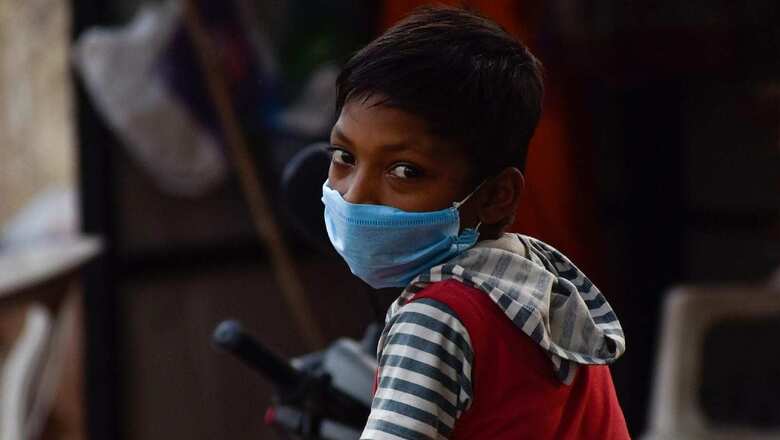
views
While the debate around reopening of schools rages in India, the country recorded more than three lakh new Covid-19 cases on Wednesday, a rise of 12.2 per cent over Tuesday, and 491 people succumbed to the infection in 24 hours, taking the pandemic’s toll to 487,693. The country is yet to witness a peak in the third wave, which has seen the Omicron variant of coronavirus re-infecting even those who are fully vaccinated. In such a scenario, experts are of the opinion that reopening schools would pose a risk of leaving children vulnerable to contracting the infection.
India has not yet started vaccinating children below the age of 15 and some between 15 and 17 have received only their first dose. Vaccination for the 15-17 age group was opened earlier this month. Reopening schools would mean all those below 15 years, who are unvaccinated, face the threat of getting infected.
Global experts have said that the new variant of the coronavirus can have long term effects, including some on the brain and neurological development, on unvaccinated children.
Anthony Costello, professor of global health and sustainable development at UCL and former director at WHO, in a conference, said, “My biggest worry is the long term effects of the virus, particularly on the brain. We know people who get fatigued, brain fog as long term effects of coronavirus.”
He also claimed to have been looking at papers which provide evidence that the coronavirus impacts the T cells and can damage them in the same way as the HIV, damaging the immunity of the infected person.
“Virus cannot damage nerve cells but it can affect cells around blood vessels which have long-term effects, especially for the brain,” he said during the discussion held by The Independent SAGE.
Talking particularly about kids, said, “we have allowed millions of our children to be affected with this virus. There is no real hard evidence that suggests that the virus is milder than delta on unvaccinated people.”
Only with time and growing scientific interest we can learn the impact of coronavirus on the brain, he suggested. “We know that measles causes, in a few children, neurodegeneration, zika virus destroys brains of babies”, said the international expert, adding that the scale of virus and long term impacts for children, especially those unvaccinated is yet to be studied completely.
Education institutes across India, meanwhile, are debating the reopening of schools. Some states like Maharashtra have announced to reopen schools in areas with fewer Covid-19 cases, schools across most parts of the country remain closed. There is increasing fear of the virus impacting the kids and having long term effects on them.
While worried about learning losses, most Indian parents are also still unwilling to send their kids back to school. A LocalCirles Survey report suggested that about 52 per cent of parents are unwilling to send their kids to school as cases in their respective cities are on a rise. Further 10 per cent of parents said that they are not willing to send kids back to school till the cases start to decline. Only 18 per cent of parents said that they are sending their kids to schools despite Omicron – the new variant of the coronavirus, according to the survey.
Read all the Latest Education News here


















Comments
0 comment